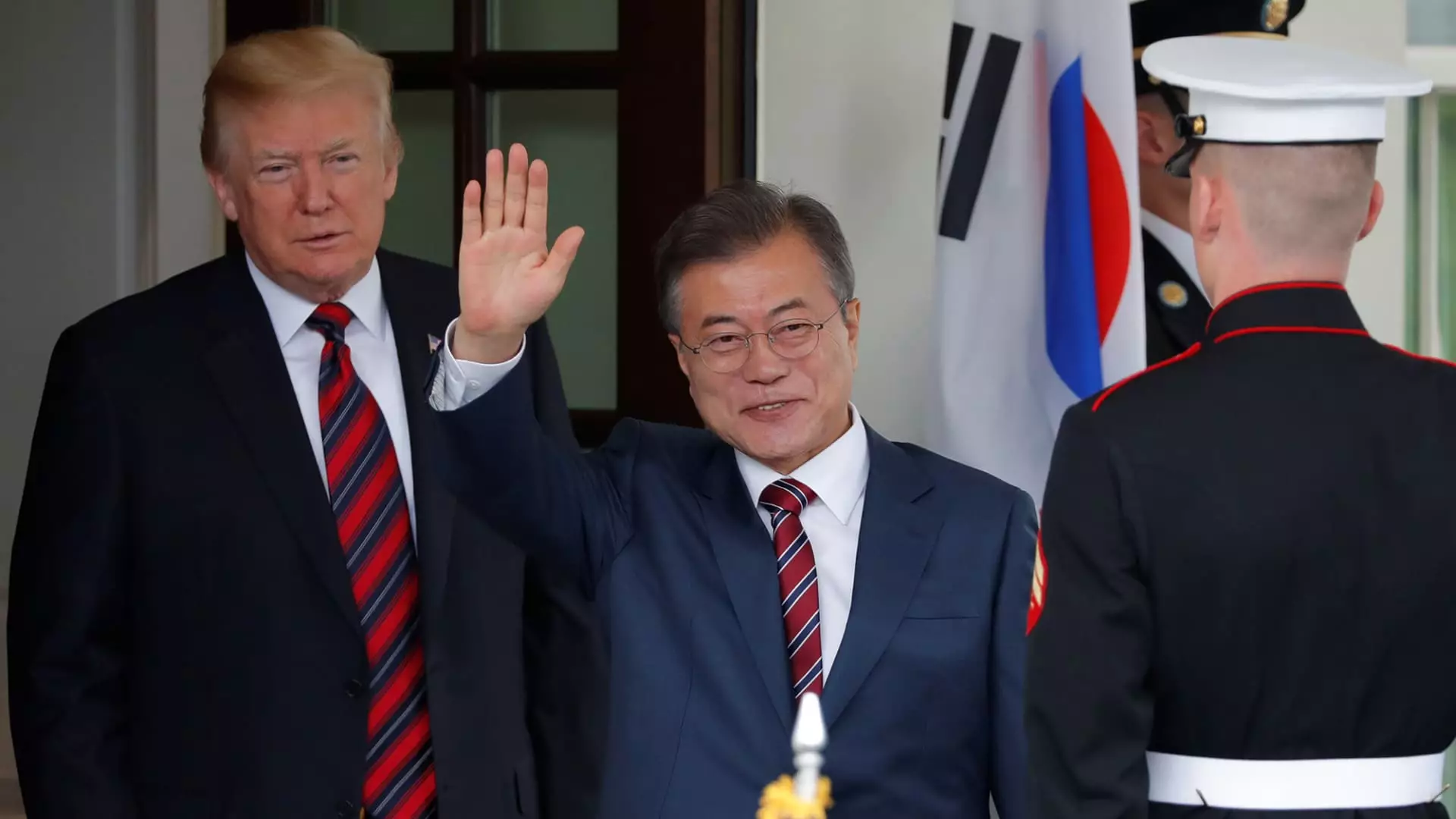The recent threats of increased tariffs from President Donald Trump have raised significant concerns within the automotive industry, particularly regarding imports from Japan and South Korea. As these nations contribute meaningfully to the U.S. auto market, discussions around tariffs pose substantial implications for both manufacturers and consumers. This article explores the ramifications of potential tariffs against these two countries and projects the broader impact on the automotive landscape.
The Shift in Import Dynamics
South Korea and Japan collectively accounted for a significant portion of vehicle sales in the U.S., with 16.8% recorded last year. This statistic highlights the changing dynamics of automotive imports over recent years, notably with South Korea surpassing Japan in terms of export volume to the U.S. With 8.6% of U.S. auto sales attributed to South Korean manufacturers, it’s important to recognize the essential role these countries have played in the domestic market. Automakers including General Motors (GM) and Hyundai have managed to leverage a tariff-free status for their exports, bolstering their operations significantly.
The current landscape presents a stark contrast to potential increases in tariffs that President Trump has hinted at, especially concerning Canada and Mexico, where a further 25% tariff could be imposed. While current levies on Japanese imports are relatively low at 2.5%, the scenarios projected could drastically alter the cost structure for both automakers and end consumers.
One crucial aspect to consider is how tariffs could eventually translate to higher prices for consumers. Economists express concern that manufacturers may respond to increased costs from tariffs by passing those charges onto buyers, leading to elevated vehicle prices. This scenario threatens to suppress consumer demand and could result in diminished sales across the board.
Hyundai, currently the largest exporter of vehicles to the U.S., stands to be significantly affected if tariffs are imposed. The company has seen its footprint in the U.S. expand, with a reported sales increase from 845,000 vehicles in 2019 to over 1.37 million in 2024. Such growth, however, may be jeopardized by additional tariffs, which could discourage potential buyers already grappling with rising inflation and economic uncertainties.
Trade policies are inherently complex, and as noted by Terence Lau, a law professor and former trade expert, the automotive industry thrives on the principles of free trade. Although the industry has historically adapted to shifting economic landscapes, adjustments take time and can incur substantial costs. Lau emphasizes that minimal tariffs could be manageable, but as they escalate, the effects on profit margins could become pronounced.
The automotive industry is not simply export-driven; it is geared towards anticipating and meeting consumer demands. The ongoing transition towards electric vehicles and sustainable options necessitates significant investment. With mounting tariff uncertainties, these very investments might take a backseat as manufacturers stay vigilant about profitability.
GM and Hyundai, at the forefront of potential tariff implications, may need to recalibrate their operational strategies. GM has notably increased its imports from South Korea, a move that could backfire if tariffs impose a heavier financial burden. The company invested heavily in its South Korean manufacturing, totaling 9 trillion won (~$6.2 billion) since 2002, which distinguishes its vehicle lineup in the U.S. market. With South Korea’s current 0% tariff for automobiles, the situation may become more precarious if that rate changes.
Ford Motor’s CEO Jim Farley suggested that if tariffs are to be implemented, a comprehensive analysis of trade relations is crucial, emphasizing that a selective approach would advantage import competitors. Such insights illustrate a growing frustration among domestic manufacturers, who perceive that unequal tariff applications could lead to an unlevel playing field in the auto market.
As the White House navigates discussions around comprehensive tariff strategies, the automotive market awaits definitive actions that could either stabilize or destabilize its growth. The proposed discussions regarding reciprocal tariff policies may impact a wide array of industries beyond just automotive, including pharmaceuticals. The outcome of these negotiations will undoubtedly shape the future of the industry, elucidating the crucial balance between securing fair trade practices and protecting the interests of consumers.
Ultimately, a strategic resolution that prioritizes equitable trade will prove vital for the long-term sustainability of the automotive industry, which remains deeply intertwined with global supply chains and consumer relationships.


Leave a Reply